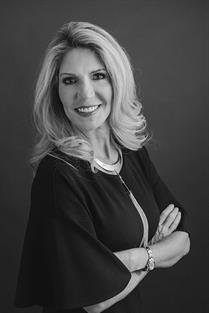I got so excited recently when I opened the mail to find my biennial jury summons. I’m one of those people who seems to get summoned every other year. But unlike most, I actually look forward to it.
Most trials are criminal cases, not civil. I’m a civil trial lawyer, so I figure I ought to have a fair chance at being selected because this isn’t my wheelhouse. I feel comfortable I can be objective and I’m positive I’ll try to be. I answer the attorneys’ questions honestly but not too enthusiastically because I’m trying to be cool. I want to be selected. Still, no matter what I do, I am never, ever chosen.
As an attorney, I am fascinated by the entire process because believe it or not, jury selection is the most important part of the entire trial. Some say it’s the only thing that matters. That’s because you can’t be a good enough lawyer if you’re selling the wrong case to the wrong jury. Experienced attorneys know you cannot “flip” someone on a position they’ve deeply held for a long period of time.
The attorneys who give jury selection the respect and time it deserves understand that they’re not so much selecting a jury as de-selecting one. The attorneys are trying to remove from the jury all persons who, for whatever reason, are not inclined to render a verdict in their client’s favor. To do that, lawyers often ask very strange questions.
Most people agree it just makes sense to ask if the venire (the jury pool) know or are related to each other or any of the parties or witnesses. But people are often vexed by questions like, “In raising children, what’s more important, love or discipline?” That’s an example of an attorney being overly subtle because he’s trying not to offend his potential jurors. Clearly he wants to know what their core values are and whether they see things as black and white or in shades of grey. So why doesn’t he just ask them that?
Because in addition to identifying the jurors’ core values and beliefs, the lawyer is trying to curry favor and not offend anyone on the panel. Many attorneys still believe that if the jury likes them and finds them funny and charming, their client will win. Based on my experience and anecdotal accounts from lawyers and jury members alike, that’s just wrong. Most jurors take their oath and obligations quite seriously and do their level best to render the verdict the law demands, regardless of whether that means the side they like wins or loses.
Oddly, I still see even experienced attorneys pay short shrift to jury selection. Some simply do all the talking. It is antithetical how one can learn anything about another person by doing all of the talking and none of the listening. Others are technical lawyers and for them, questioning the venire is just something to check off the list at the beginning of a trial. By simply going through the motions, they end up trying a case to six strangers they know nothing about. Then they wonder what went wrong and how they lost that trial. Almost invariably, they lost the case in jury selection.
Jurors are humans. Like other humans, they’re offended when someone insults their intelligence. By asking silly questions and treating jury members like they can’t see what the attorneys are doing, they not only lose the opportunity to build rapport, they risk offending the very people they’re trying to endear. Not only do juries see through flattery, they’re understandably annoyed by silly-sounding questions that appear to be a complete waste of their time. By overthinking their questions, and trying to be subtle and not offend, those attorneys have actually dug a hole for themselves before they’ve even left the gate.
So what should you expect when you’re summoned for jury duty? If it’s done well, you should expect to be asked questions that elicit honest responses about how you feel about various issues, how strongly you feel about them, and how long you’ve held those views. You can expect to be treated courteously and respectfully by courthouse personnel, the judge(s), and the attorneys. You should expect to have your time valued and for expectations to be clearly communicated to you.
What is expected of you is complete candor and punctuality. Know that it is more important to speak up than keep your mouth closed out of fear of being embarrassed. The judges and attorneys appreciate that you are being asked personally invasive and sometimes delicate questions. That’s why there is a procedure by which you can provide those answers privately, outside the presence of the other jurors and courtroom observers.
Finally, if chosen to sit on a trial, you should expect to miss work or time away from what you typically do during the day. It is possible you may need to come in early, stay after 5:00 p.m., or visit a place or scene involved in the case. Please understand that while this can pose a hardship, it is our civic duty to serve as jurors, even when it costs us time and money. Without jurors, our justice system cannot work.






